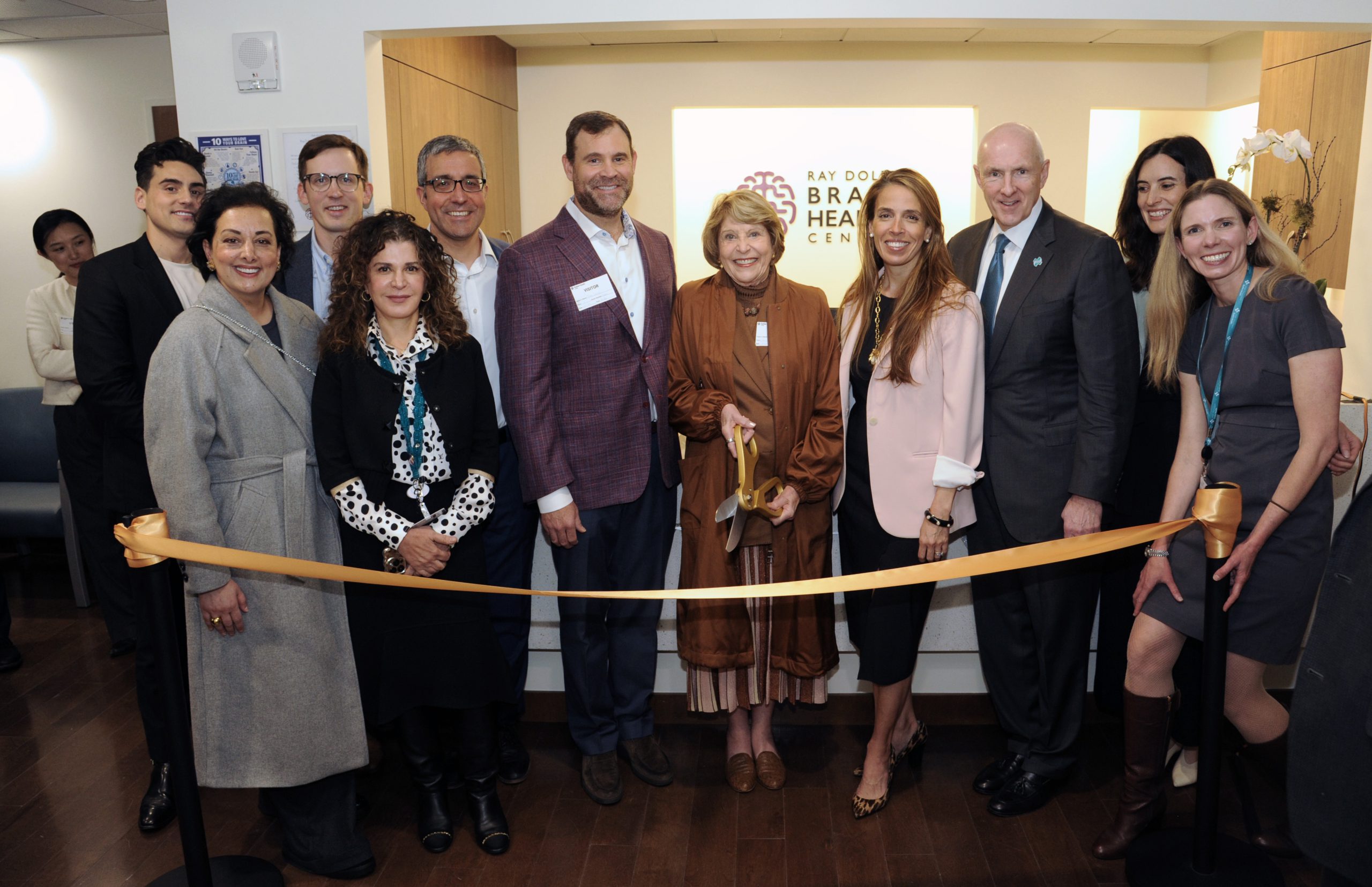Sutter’s Ray Dolby Brain Health Center has expanded to a second location at CPMC’s Davies Campus, increasing its capacity to provide cutting-edge treatments for Alzheimer’s and other memory disorders, with plans to move to the Mission Bernal Care Complex in 2028.
By Jennifer Modenessi, Vitals contributor
Sutter Health’s Ray Dolby Brain Health Center is expanding ahead of a major move that will give more patients access to its groundbreaking treatment programs.
The nationally recognized care center for Alzheimer’s disease, dementia and other memory disorders has opened a second location at 601 Duboce Ave. in San Francisco on Sutter’s California Pacific Medical Center’s (CPMC) Davies Campus (South Tower ER entrance), with patient care now underway. The new space creates room for the Center’s integrated approach to care, including visits with social workers and patient-centered support groups. It offers a glimpse of the Center’s future at its new home at the Mission Bernal Care Complex, which is scheduled to open at CPMC’s Mission Bernal Campus in 2028.

Renowned for its family-focused patient care, Sutter’s Ray Dolby Brain Health Center treats over 2,000 patients annually
“The expansion at the Davies Campus gives us the much-needed space to grow our ground-breaking care for patients and their families and welcome additional providers,” says Dr. Armen Moughamian, the Center’s medical director. “We are excited to continue our research and focus on delivering advanced treatments for Alzheimer’s disease while we prepare for the future at Mission Bernal.”
Advancing Care
Renowned for its family-focused patient care, the Dolby Brain Health Center currently treats over 2,000 patients annually. That number is expected to grow because new disease modifying treatments for Alzheimer’s disease have been recently approved.
One such treatment is lecanemab (Leqembi®), a new intravenous therapy that slows cognitive and functional decline in people with early-stage Alzheimer’s disease. The Center was the first clinic in the Bay Area to offer the medicine after it received full FDA approval last year.
The Center is also using donanemab (Kisunla™), another more recently approved infusion treatment that similarly reduces cognitive and functional declines due to early-stage Alzheimer’s disease. “These new therapies are an exciting advance in Alzheimer’s disease and stress the importance of early diagnosis, as they are most effective in the earliest stages of Alzheimer’s disease,” Dr. Moughamian explains. The Dolby Center is also currently participating in the TRAILBLAZER-ALZ3 clinical trial that is testing whether giving donanemab to patients prior to developing symptoms delays or prevents the cognitive and functional declines of Alzheimer’s disease. Additionally, Sutter has joined the Alzheimer’s Network for Treatment and Diagnostics (ALZ-NET), a database that tracks health outcomes and safety of therapies like lecanemab and donanemab.
As the population ages, the number of people with mild cognitive impairment seeking these and other treatments is projected to increase. It is estimated that 6.9 million Americans ages 65 and older are living with Alzheimer’s today. Without medical breakthroughs to slow or prevent the disease, that number is expected to double by 2060, according to The Alzheimer’s Association.
“While the reality is that more people will develop Alzheimer’s disease and other memory disorders in the future, recent medical advances are showing more promise than ever before,” says Dr. Travis Urban, the Center’s associate medical director. “For the first time, new therapies are showing that they can actually slow down the trajectory of the disease.”
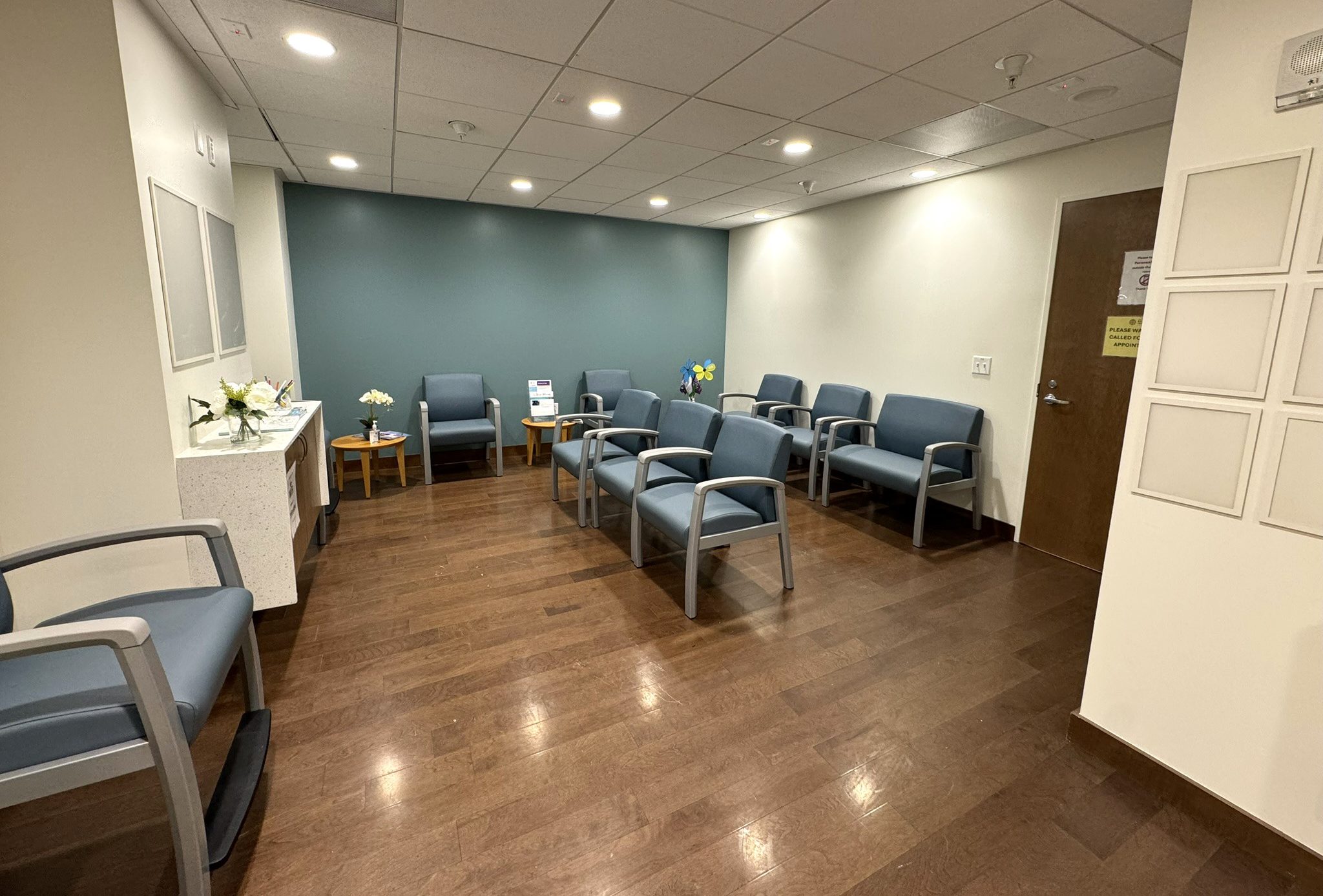
Patient reception at the Ray Dolby Brain Health Center at CPMC’s Davies Campus (601 Duboce Ave.)
Accommodating Growth
The Center’s expansion and future move position it to meet the growing demand for services, which it has provided at CPMC since opening in 2012 with a $21 million investment from the family of pioneering audio engineer Ray Dolby. Dolby received treatment for Alzheimer’s disease at CPMC and the Brain Health Center is named in his honor.
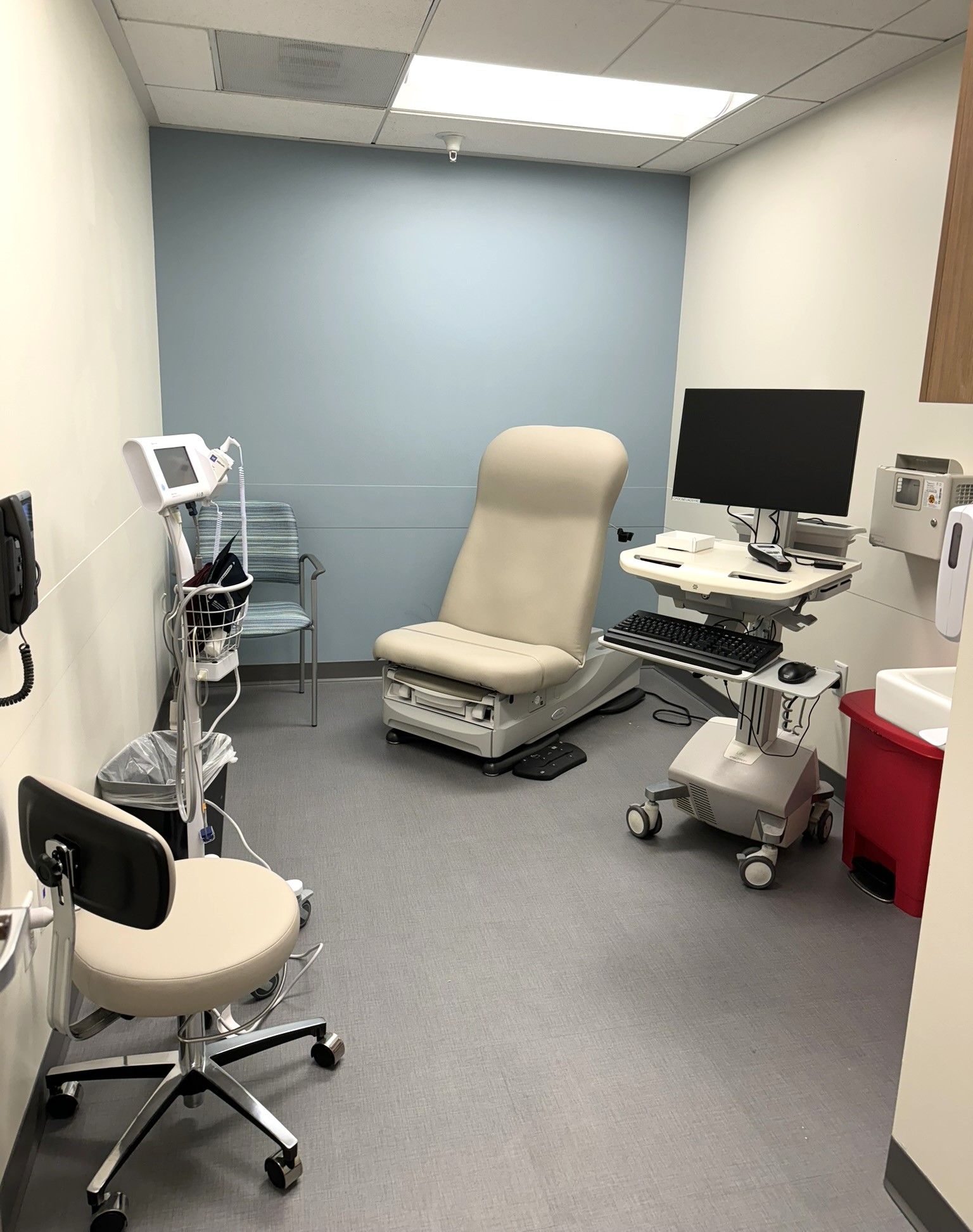
Patient exam room
The new location at Davies features more exam rooms and offices for the Center’s newly expanded team of five providers and three social workers. The team recently welcomed physician Dr. Austin Momii, a neurologist with expertise in neurodegenerative disease and stroke, and Jenna Gutierrez, a nurse practitioner who works with patients receiving infusion therapy.
The Center is also expanding beyond its physical walls. A satellite clinic in Novato, Calif. (Marin County), is making treatment accessible to residents in the North Bay area. An additional satellite location in the East Bay will offer neuropsychological services to patients experiencing neurodegenerative symptoms and disease.
The Center’s current location at 45 Castro Street will remain open for neuropsychology appointments and patient support groups.
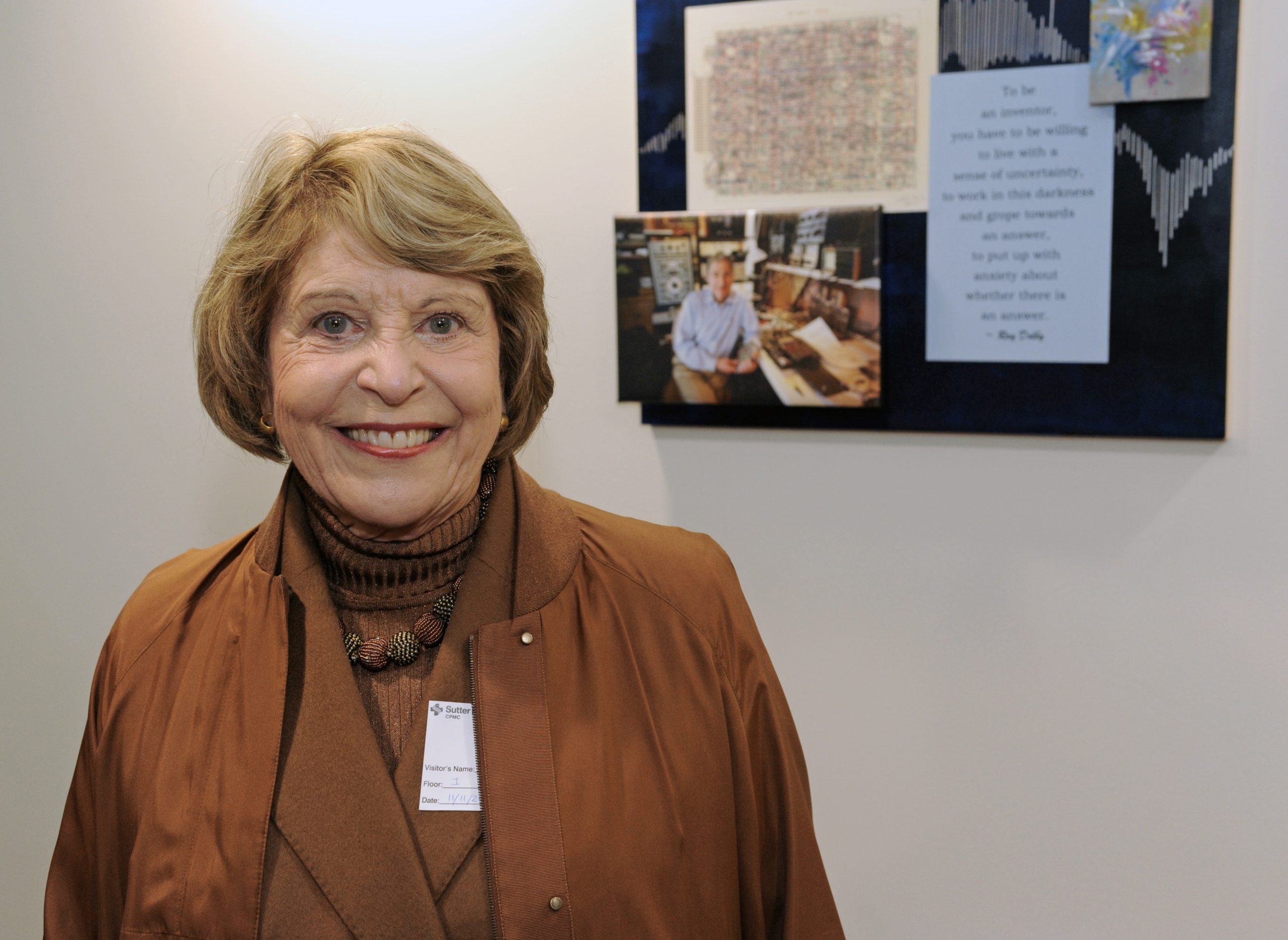
Dagmar Dolby and her family donated $21 million to establish the Ray Dolby Brain Health Center at CPMC in 2011
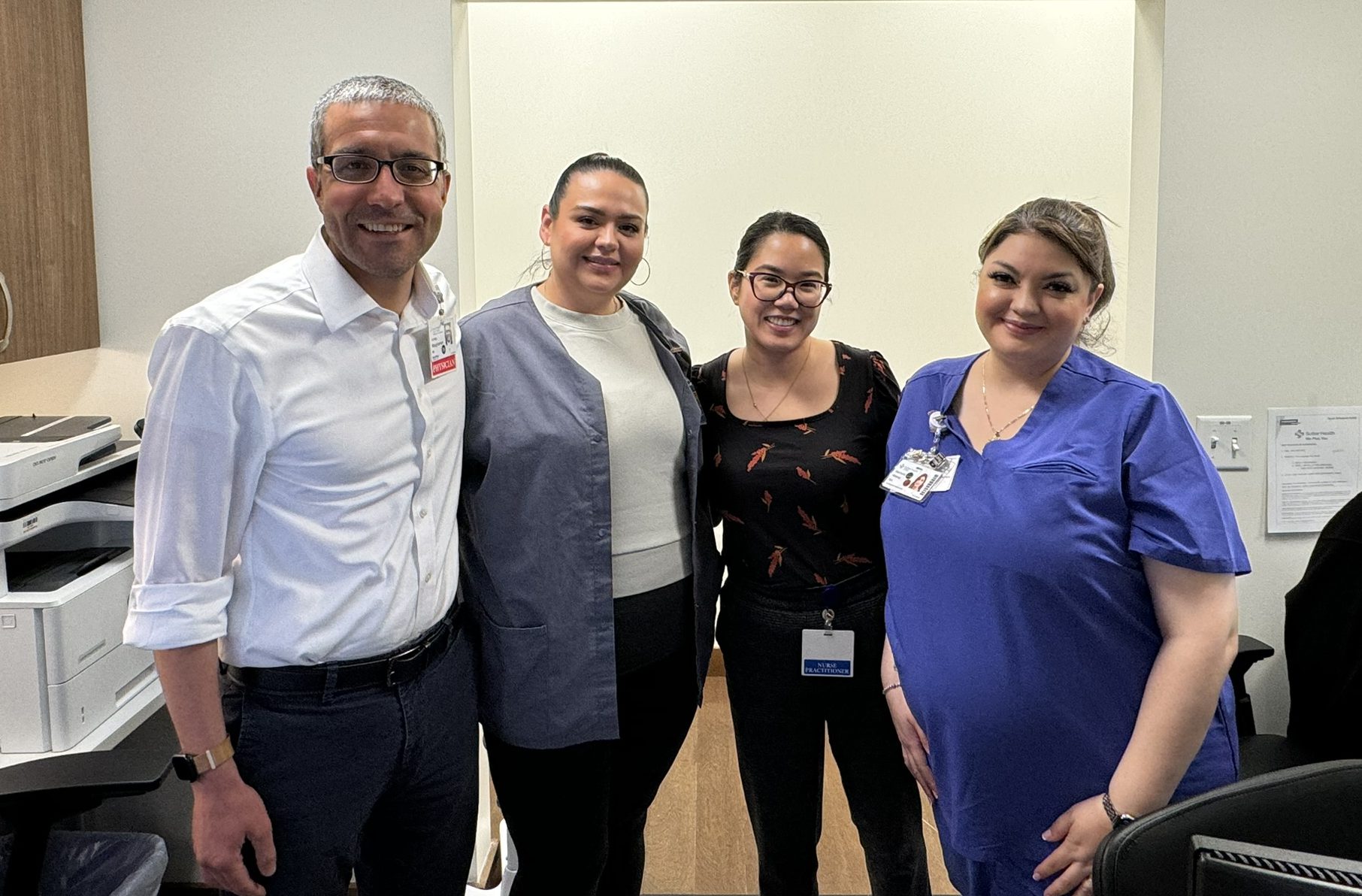
(Left to Right) Dr. Armen Moughamian (medical director), Carla Riechmann (medical assistant II), Jenna Gutierrez (nurse practitioner), Marisela Alvarez (medical assistant II)
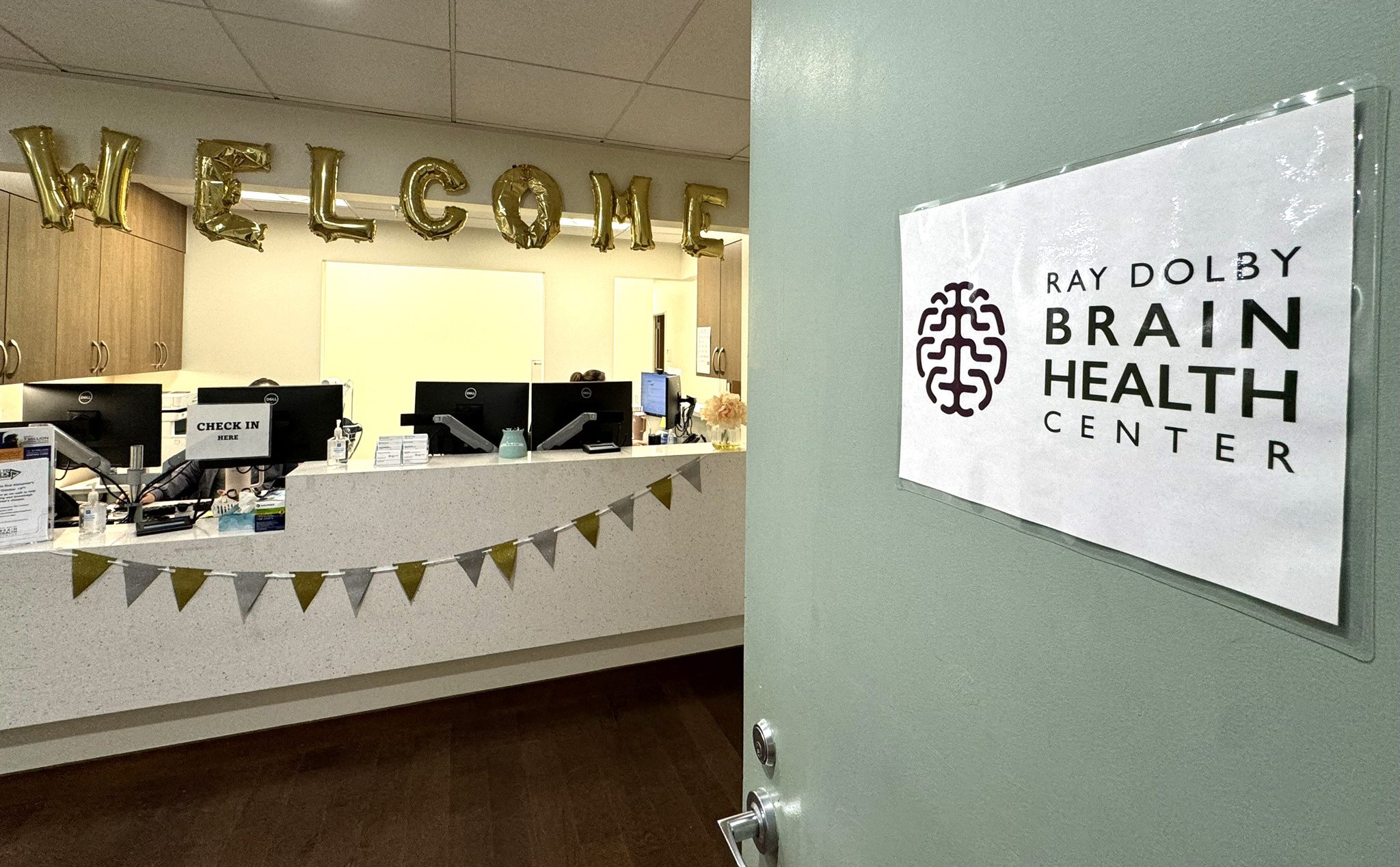
The Ray Dolby Brain Health Center at CPMC’s Davies Campus (601 Duboce Ave.)
Click here to learn more about the Ray Dolby Brain Health Center.

